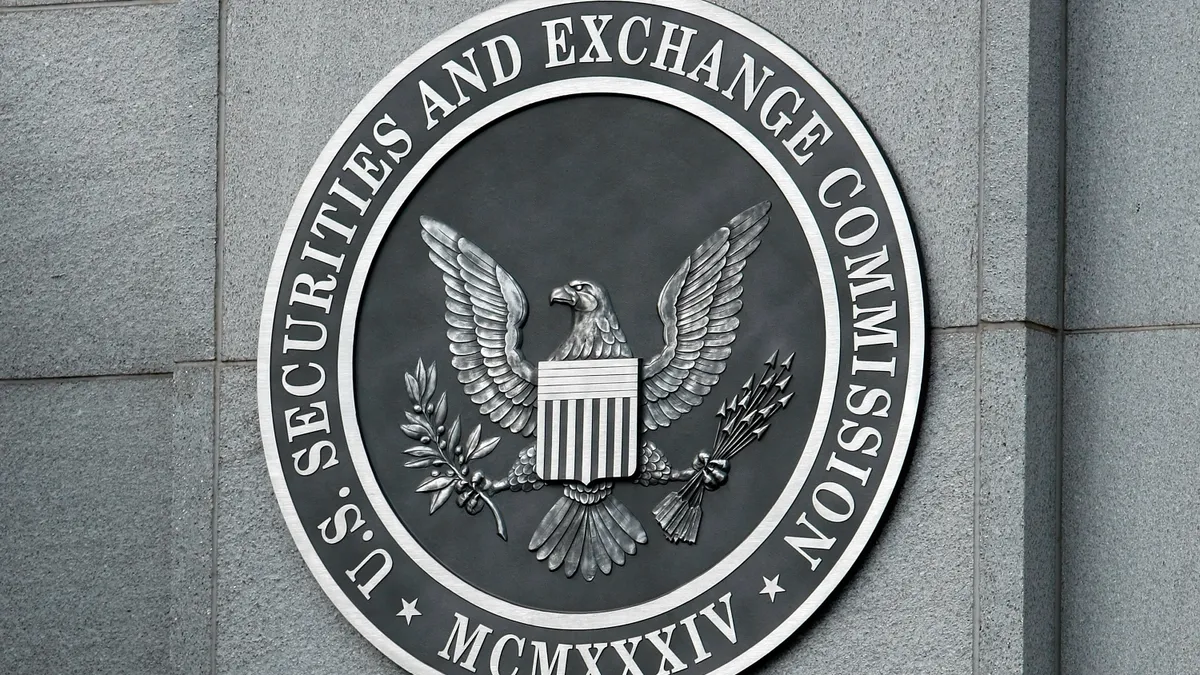Dive Brief:
- The Securities and Exchange Commission, while revising its proposed climate risk disclosure rule, is carefully poring over a record 15,000 public comments, including concerns that a mandate for reporting on carbon emissions may harm small business or squeeze bank lending, SEC Corporation Finance Director Erik Gerding said Tuesday.
- “We’ve received comments expressing a lot of the concerns that you’ve mentioned today and we are very carefully considering those comments and taking them very, very seriously,” Gerding said in reply to questions from Rep. David Scott, D-Ga., while testifying before a subcommittee under the House Financial Services Committee.
- Gerding faced especially sharp criticism from Republican lawmakers. The SEC is “pushing an unconventional and partisan agenda that hampers the free market system,” Rep. Ann Wagner, a Missouri Republican and capital markets subcommittee chair, said at the start of the hearing. “The burden of excessive regulations and politically motivated disclosures requirements falls heavily on small- and medium-sized companies, impeding their growth.”
Dive Insight:
The SEC, seeking to achieve uniformity and consistency in corporate reporting, released a proposed rule in March 2022 mandating that companies describe on Form 10-K their levels of greenhouse gas emissions and strategy toward reducing climate risk.
The agency has twice postponed a final rule as it reviews a record number of public comments. While the SEC recently indicated that it plans to release the regulation later this year, SEC Chair Gary Gensler on Monday declined to set a completion date.
“I don't have a time — it's really when the staff is ready and when the commission is ready to put something out and adopt it,” Gensler said in response to questions after a speech.
The SEC has come under fire for planning to require companies to disclose so-called Scope 3 carbon emissions by suppliers and vendors across their supply chains.
The requirement “could have a significantly costly and adverse effect on thousands of small farmers and ranchers,” Scott told Gerding. Scott also expressed concern that financial institutions, as they comply with Scope 3 requirements, may eventually curtail loans to small businesses.
GOP lawmakers on the subcommittee were more pointed in their criticism toward Gerding and the SEC.
“Your 500-page mandatory climate disclosure rule would be in violation not just of what I think is common sense, but could be considered anti-capitalist and against the ability to grow our economy,” Rep. Pete Sessions, R-Texas, told Gerding. “We believe that this SEC are activists, trying to take a perspective of destroying market gains that might be made, employment by companies, the opportunity to stay afloat and to be competitive with the world.”
Under the SEC’s proposed regulation, companies would need to disclose data on greenhouse gas emissions from their facilities (so-called Scope 1) and through their energy purchases (Scope 2). They would also need to obtain independent attestation of their data.
Republicans on the House Financial Services Committee this month have stepped up their opposition to the proposed rule and to efforts by shareholders, Democratic lawmakers and other stakeholders to promote environmental, social and governance best practices.
Republicans in a series of hearings have said ESG activism harms Main Street investors and thwarts company efforts to increase shareholder value.
Democratic lawmakers pushed back on Tuesday, defending the SEC’s proposed disclosure rule and accusing Republicans of attempting to deny investors information on climate risk.
“The Republicans are waging war against the capitalist market,” said Rep. Brad Sherman of California, the subcommittee’s ranking Democrat. “Shareholders are literally the capitalists — they should be given the information so that they can decide where to invest their money.”
“It seems like the purpose of these hearings is to tell climate investors to go to hell, or go to Europe, where they can get the information should they choose to invest in European companies,” Sherman said.












